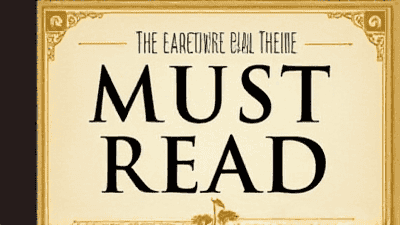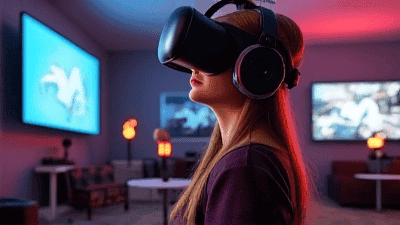
Unearthing Musical Gems: A Definitive Guide to Discovery Beyond Mainstream Algorithms
The landscape of music consumption is increasingly dominated by algorithms, sophisticated systems designed to predict listener preferences based on vast datasets. While these tools offer undeniable convenience and can introduce users to music within their established taste profiles, they often inadvertently create echo chambers, limiting exposure to truly novel or diverse sounds. This prevalence of algorithmic curation presents a core challenge: how can individuals cultivate an expansive and unique musical palate when their digital environments are optimized for familiarity?
The background of this shift lies in the rise of streaming platforms, which have revolutionized access to music but also centralized discovery mechanisms. For the scientific community, the study of these algorithms and their psychological impacts on human perception and choice is a burgeoning field. For the industry, understanding user discovery habits beyond algorithmic dictates is crucial for nurturing emerging artists and diverse genres, preventing cultural homogenization. This phenomenon impacts society by potentially narrowing our collective musical experience, stifling the cross-pollination of ideas that diverse art provides. What impact would it have on our understanding or practice of music appreciation if we failed to fully comprehend the mechanisms of musical discovery beyond automated recommendations, and the methods to reclaim agency over our listening journeys?
Tapping into Human Expertise

The Power of Curated Insights: Podcasts, Blogs, and Independent Radio
In an age of automated recommendations, human curation stands as a vital counterpoint, offering depth, context, and often, an emotional connection that algorithms struggle to replicate. Independent music blogs, podcasts, and community radio stations are prime examples of platforms where passionate experts delve into niche genres, champion emerging artists, and provide insightful commentary. Unlike algorithms that primarily analyze listening patterns, human curators bring a wealth of knowledge about music history, cultural significance, and artistic intent to their recommendations. For instance, platforms like Pitchfork or All Music provide in-depth reviews and genre-specific articles that can guide listeners to artists they might otherwise overlook. Podcasts such as All Songs Considered from NPR or KEXP Live Sessions offer interviews and live performances, presenting music within a narrative context that enhances appreciation. Similarly, independent radio stations, whether online-only like NTS Radio or local community stations, often feature DJs with deep genre expertise who curate shows that transcend popular trends, introducing listeners to experimental sounds or obscure artists. These avenues foster a more engaged discovery process, encouraging active listening and critical evaluation rather than passive acceptance.
Exploring Tangible Soundscapes
The Rediscovery Loop: Physical Media and Local Music Scenes
While digital platforms offer unparalleled convenience, the physical world provides rich, often serendipitous avenues for musical discovery, fundamentally differing from algorithm-driven experiences. Engaging with physical media—such as vinyl records or compact discs—transforms music listening into a more deliberate, multisensory act. Browsing the racks of an independent record store, for example, is a tactile journey; album artwork, liner notes, and even the store's curated sections can spark curiosity. Store clerks, often deeply knowledgeable, become personal guides, offering recommendations based on genuine conversations rather than data points. Vinyl, in particular, with its ritualistic playback, encourages a full-album listening experience, potentially revealing hidden tracks or subtle artistic choices missed in shuffled playlists.
Concurrently, immersing oneself in local music scenes offers an unparalleled, direct connection to emerging talent. Attending live performances at small venues, open mic nights, or community festivals provides an intimate encounter with artists, often before they gain wider recognition. This isn't just about sound; it's about the energy, the communal experience, and the opportunity to interact directly with musicians. Many groundbreaking artists started in local scenes, and supporting these grassroots efforts is crucial for musical diversity.
Here's a comparison of discovery methods:
| Discovery Method | Pros | Cons |
|---|---|---|
| Independent Record Stores | Expert recommendations, tactile experience, community hub, supports local businesses | Limited stock based on physical space, can be time-consuming, not always accessible |
| Live Local Gigs | Direct artist interaction, unique atmosphere, supports emerging artists, spontaneous discoveries | Quality can vary, requires physical presence, scheduling conflicts, genre limitations |
| Independent Radio Stations | Diverse programming, curated by passionate individuals, exposes niche genres | Passive listening, timing dependent for live shows, may not always align with current mood |
The data above illustrates that while physical and local methods may have logistical limitations, their inherent human element and potential for deep, serendipitous discovery offer a qualitative richness absent in purely algorithmic streams. These methods cultivate a sense of active participation and personal investment in the music, fostering a more profound connection than any algorithm can achieve.
Strategic Digital Exploration

Smart Searching: Database Diving and Sonic Similarities
Even within the digital realm, it is possible to bypass mainstream algorithms by employing strategic exploration techniques that prioritize discovery over passive reception. Websites like Bandcamp and Discogs are invaluable resources for this approach. Bandcamp allows artists to directly upload and sell their music, often featuring extensive genre tagging, geographical filters, and "fan collections" that reveal what other listeners who enjoy a specific artist are buying. This offers a more transparent and artist-centric discovery path. Discogs, on the other hand, is a vast music database primarily focused on releases and labels, enabling users to explore entire discographies, identify collaborators, and trace the lineage of genres.
Beyond these dedicated platforms, tools that focus on sonic similarities rather than behavioral data can be highly effective. Services like Gnoosic or MusicMap analyze the sonic characteristics of music to suggest artists that sound alike, regardless of popularity or shared listener demographics. This moves beyond the "people who liked X also liked Y" paradigm to a more analytical understanding of musical composition and texture. Leveraging advanced search filters on streaming platforms themselves, if available, or exploring less trafficked "similar artists" sections can also yield gems. The key is to be deliberate: seek out genre-specific forums, subreddits, or even academic papers on musicology that discuss particular movements or artists. These methods require a proactive mindset, treating music discovery as a journey of research and exploration rather than passive consumption.
Conclusion
Recapturing agency in music discovery beyond the pervasive influence of mainstream algorithms is not just about finding new songs; it's about enriching personal taste, supporting diverse artistic expression, and fostering a deeper engagement with culture. We have explored three pivotal strategies: leveraging the invaluable insights of human curators through podcasts, blogs, and independent radio; immersing ourselves in the tangible experiences of physical media and vibrant local music scenes; and employing strategic digital exploration methods that dive into databases and analyze sonic similarities. Each approach offers a distinct pathway to unearthing musical gems that automated systems, optimized for familiarity and engagement, often overlook. By embracing these diverse methods, listeners can break free from algorithmic echo chambers, cultivate a truly unique musical identity, and contribute to a more vibrant and varied global soundscape. The profound satisfaction of genuine, personal musical discovery stands as a testament to its enduring value.
Looking ahead, the landscape of music discovery will undoubtedly continue to evolve. We can anticipate the emergence of more sophisticated, ethically designed AI tools that might eventually learn to respect and even anticipate niche tastes without sacrificing artistic diversity, potentially offering a hybrid of algorithmic efficiency and human-like curation. Challenges remain, particularly in ensuring fair artist compensation in an increasingly fragmented digital economy and managing the sheer volume of new content generated daily. However, opportunities abound for interdisciplinary integration, where music discovery intertwines with fields like psychology, cultural studies, and even neuroscience to understand its impact on well-being and cognitive function. Continuous research into these areas, coupled with a proactive approach from listeners to explore beyond the algorithm, will be crucial. By consciously diversifying our discovery habits, we not only empower ourselves as listeners but also champion the diverse tapestry of musical creativity worldwide.
Frequently Asked Questions (FAQ)

Q: Isn't relying on algorithms just more efficient for discovering music? A: While algorithms certainly offer a highly efficient and convenient way to discover music, their efficiency often comes with a trade-off that impacts the depth and breadth of your musical journey. Algorithms are typically designed to optimize for engagement and familiarity, meaning they prioritize content that you are likely to enjoy based on your past listening habits or the habits of listeners similar to you. This can create a "filter bubble" or "echo chamber," where your exposure to truly new genres, experimental artists, or sounds outside your comfort zone becomes limited. Imagine an algorithm as a highly efficient restaurant menu that only suggests dishes you've ordered before or dishes popular among people with similar preferences – you'll always eat well, but you'll rarely be surprised or discover a truly unique culinary experience. Non-algorithmic discovery, on the other hand, prioritizes serendipity, context, and genuine artistic connection. It encourages you to step outside your comfort zone, exposing you to music that challenges your preconceptions and expands your musical palate in ways an algorithm, focused on predicting, cannot. It's about the joy of active exploration, supporting a broader ecosystem of artists, and preventing the homogenization of musical tastes. The value isn't just in the number of new songs found, but in the quality and diversity of the discovery experience itself.
Q: How can I start if I don't know any niche genres or artists, and feel overwhelmed by choice? A: Starting your non-algorithmic music discovery journey can feel daunting given the immense volume of music available, but the key is to approach it incrementally and with an open mind. A great first step is to pick one artist you genuinely love and actively research them. Look into their influences, the artists they collaborate with, the record labels they're signed to, or the producers they work with. This can create a branching path of discovery. For example, if you love a certain indie band, look up what other bands are on their label; often, labels have a distinct sonic identity. Another effective strategy is to tune into independent online radio stations or podcasts that specialize in genres you might be curious about. Don't worry if you don't know the genre names – simply explore shows with intriguing descriptions. Many stations feature expert DJs who provide context and insights that make new music more accessible. Consider attending local open mic nights or small concerts in your area; even if the music isn't exactly your taste, you might stumble upon a local gem or meet someone who can recommend artists. Think of it less as a task and more as a personal adventure; you don't need to become an expert overnight. Start small, follow your curiosity, and allow yourself to be surprised by what you find.








